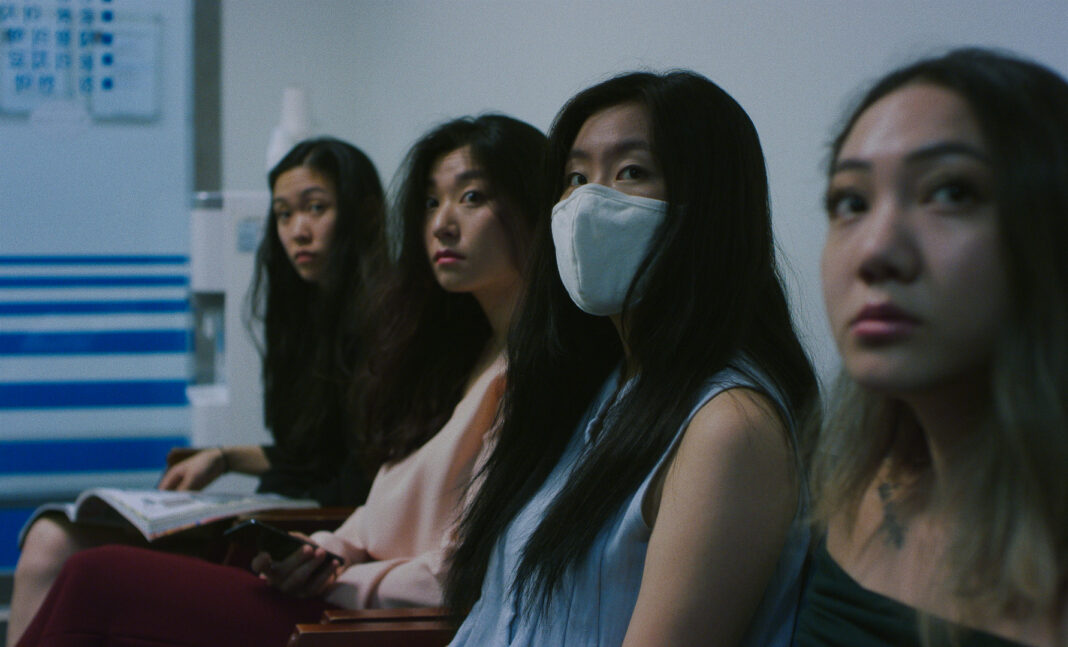The essence and perception of beauty, both internally and externally, has always been a sensitive theme for everybody regardless of background and looks. A new short by film-maker Christina Yoon, MIRROR, attempts to example the deeper meanings and themes.
Film And TV Now spoke with the film-maker about her work and the background of its’ evolution.
FILM AND TV NOW: There are two dynamics in this short – the issue of both a private black market community and a private desire to look and feel better. What was the start off point of the short?
CHRISTINA YOON: It started when an image came to mind of an Asian woman with a scarred or disfigured face walking the streets of Flushing. I was interested in the often painful disparity between one’s inner self and outer appearance, specifically the alienation of feeling detached from or wanting to reject the image you see in the mirror.
FTVN: The old adage of beauty being skin deep is very apt in this film. When you speak with your own female friends about the issue of beauty overall, what are the common and uncommon perceptions that people share?
CY: We can agree that strides have been made in American media to be encouraging of body-positivity, curvier body types, and diverse skin tones. But there is still a lot to be done.
The pressure of beauty ideals begins at such a young age, and it becomes so deeply-embedded that at a certain point it can become a form of self-hatred deep in the unconscious. There is power in representation.
When you grow up only seeing thin, beautiful white women in all the images that surround you, you start to view yourself outside that ideal of beauty. It’s in the creators’ hands to diversify representation.
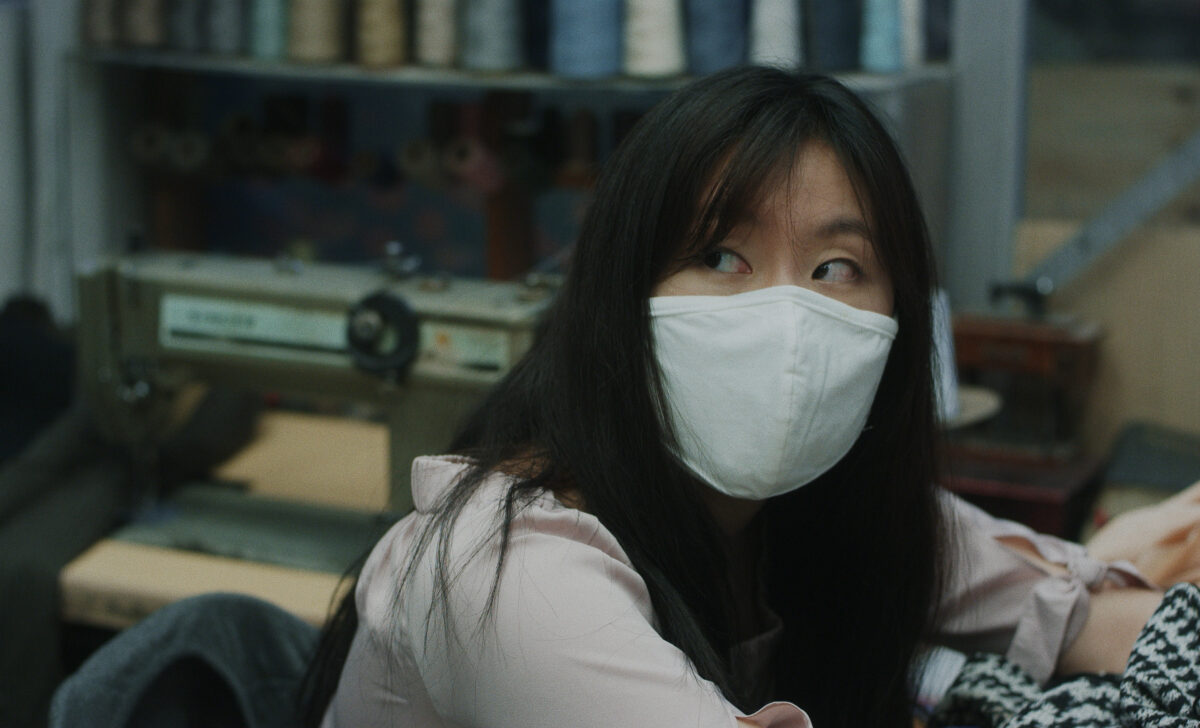
FTVN: Tell us about your cast.
CY: We cast from a very small pool because we were specifically looking for New York based Korean actors who were fluent in Korean. We soon found our lead actress, Spring Kim, who is a Korean American actress out of NYU Tisch.
She’s actually a very extroverted and gregarious person, but she was able to turn that switch off instantly and withdraw into the character. The male assistant is played by Taeho Kwak, an amazing Korean actor who was luckily based in New York at the time getting English and acting training.
FTVN: Tell us about your production team.
CY: Mirror was made as part of my studies at Columbia University’s graduate film program. Our diverse crew was comprised of students and New York based independent film crew. The production was only possible with the help of many fellow filmmaker friends.
My producer, Jungyoon Kim, is a graduate of Columbia’s MFA Creative Producing program and was a close collaborator on the production, helping to craft the story from the script stage and through post production. Jungyoon and I shared a passion for telling elevated, BIPOC genre stories, and we are developing my first feature together.
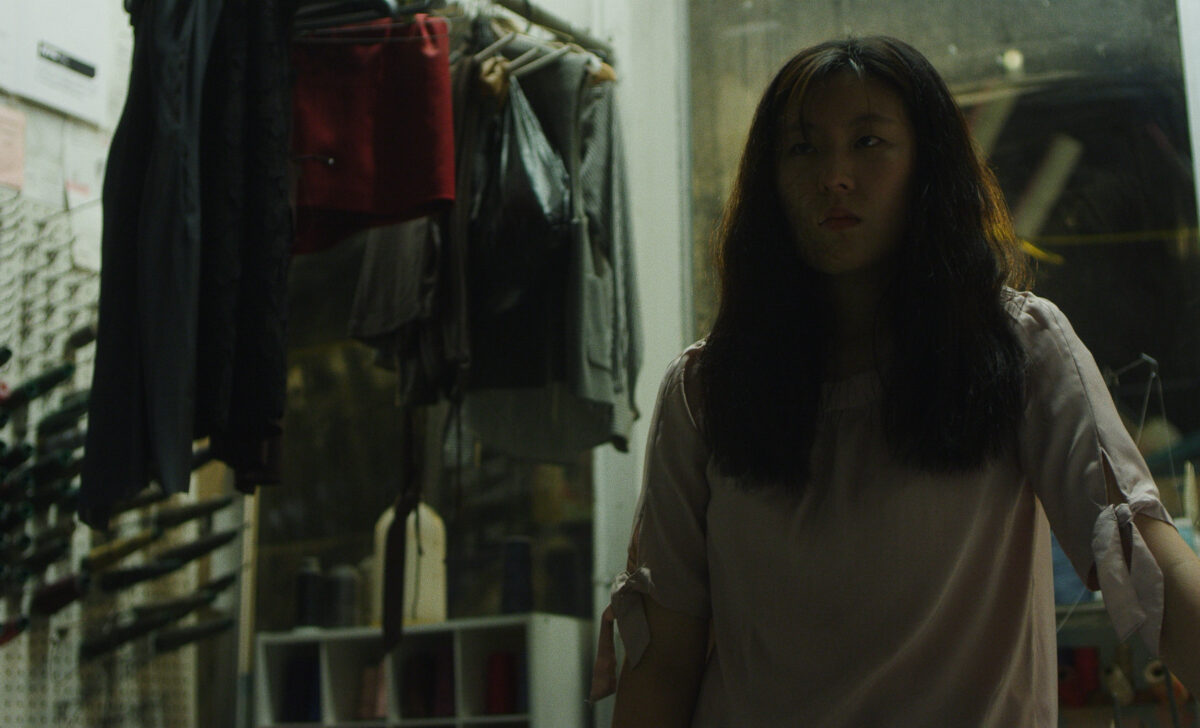
FTVN: You graduated from NYU which remains a real haven for developing film-making talent. What are the things that you learned that have surprised you, whilst you were studying there?
CY: I learned a lot of the nuts and bolts of film-making through constant practice. It’s four nonstop years of writing and shooting. Ultimately the most valuable insight I received was in my last year with a professor named Yemane Demissie.
He had us focus on our individual visions in life – the underlying messages we express in our body of work, and what kind of stories we feel compelled to tell. I left the program knowing much more about what kind of director I wanted to be and what stories I wanted to tell, despite the ever-changing trends of film-making. That clarity guides me to this day.
FTVN: Where did you shoot and for how long?
CY: We shot in Queens, NY for just over three days.
FTVN: How did you raise finance for the short?
CY: This film was funded through family and friends at a very tight budget. The shooting locations were provided to us by Korean business owners who believed in and wanted to support the film. The film wouldn’t have been possible without them.
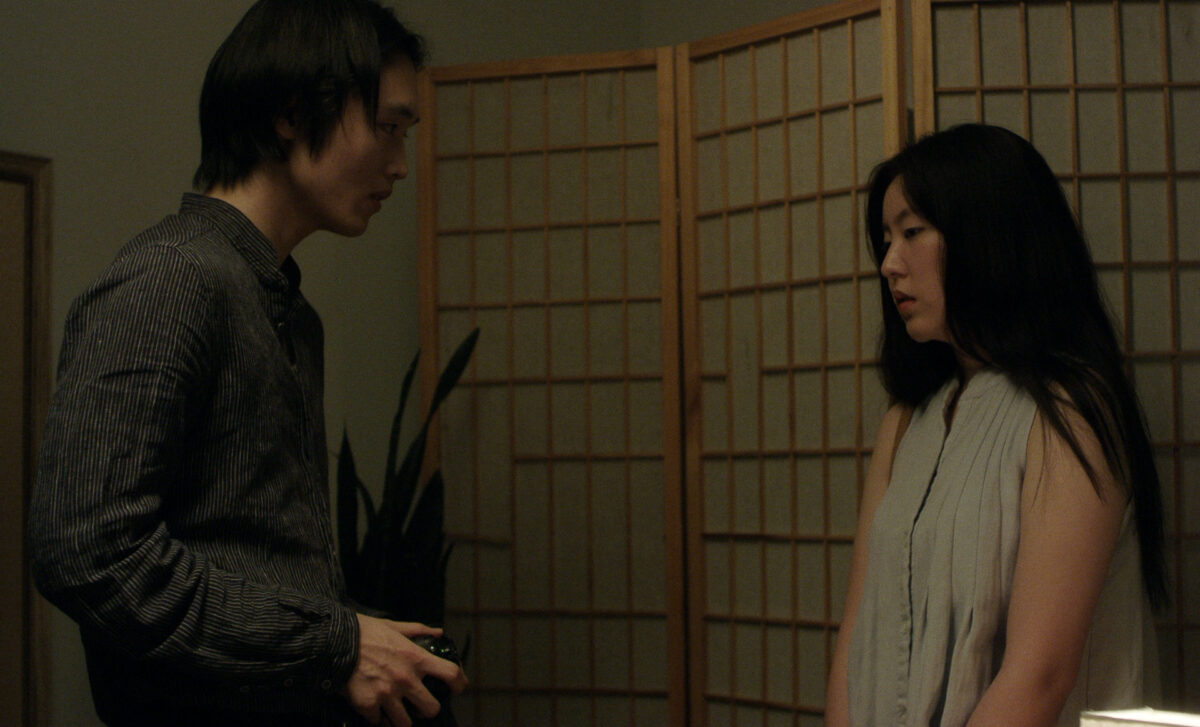
FTVN: What subjects and themes are you keen to explore in your future work?
CY: I’m most interested in exploring trauma, alienation, and questions of identity and morality. I tend to focus on BIPOC characters, and I’m venturing more into genre film-making.
Right now I’m working on another short film about a Korean adoptee who goes to Korea to search for her birth mother. It’s kind of a mystery/slow-burn thriller, and it contains all the themes I’m interested in all in one story.
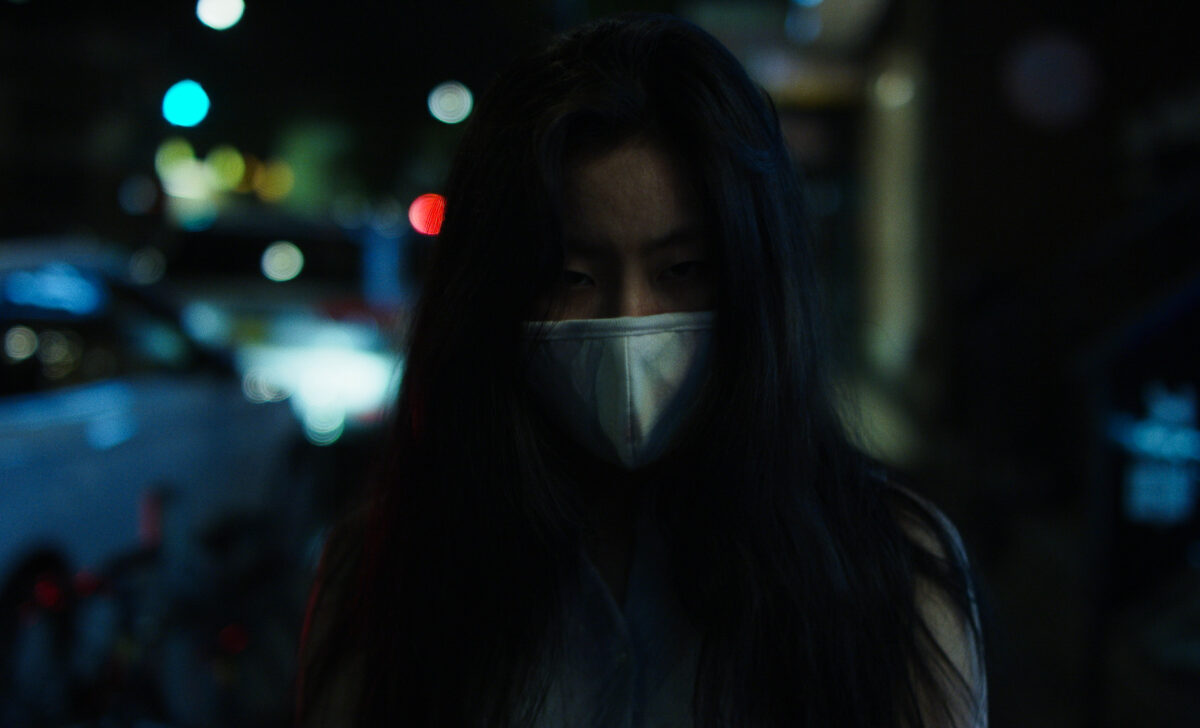
FTVN: We understand that back in South Korea, you directed branded commercial content as well as working in creative development for music videos and web dramas. In terms of the importance of more web-based content, what are the advantages and disadvantages of creating specific platform content compared to directing a mainstream platform feature or short?
CY: The web dramas were funded largely by product placement, and the amount of funding was heavily reliant on how big of a celebrity we could cast. Other than that, we had a lot of creative freedom to tell the best story we could tell, and there was much less financial risk because the series were a limited number of short episodes (4-6 episodes, each 15 to 20 mins). I find it to be an appealing format, especially for an emerging directing. Interestingly, this hasn’t really picked up in America.
FTVN: Who are your biggest cinematic influences and who in the current pool of talent both American and internationally do you have ambitions to work with if the opportunity arose?
CY: I’m influenced by Ingmar Bergman, Lynne Ramsay, Andrei Tarkovsky, Stanley Kubrick, Bong Joon Ho, and Jane Campion just to name a few.
As for talent, I would love to work with Isabelle Huppert, Lakeith Stanfield, and Steven Yeun. As a director, I’m constantly seeking new talent – especially Asian American actors since there are not enough of them currently working.
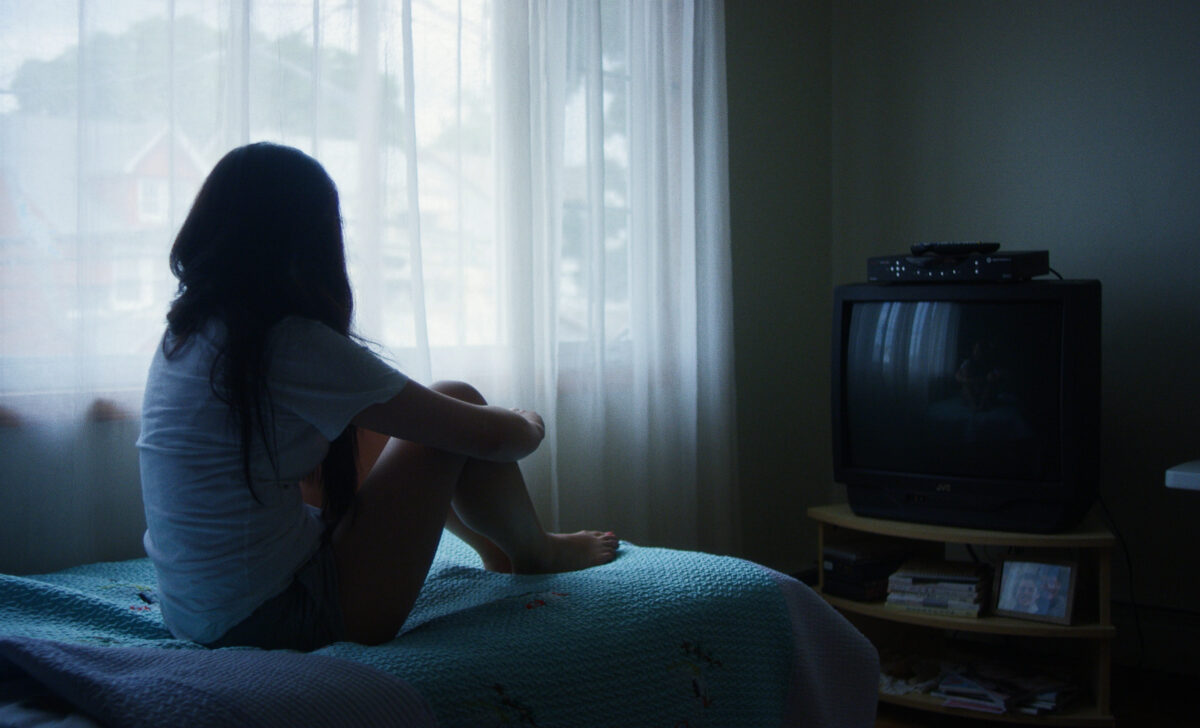
FTVN: How has COVID-19 affected your development as a film-maker?
CY: It’s been a stressful and emotional turbulent time for myself and many others. It’s forced me to slow down and delay projects, but I’ve now been been able to progress on several short and feature script ideas that I otherwise wouldn’t have had time to work on.
FTVN: Finally, what are you most proud of about the short?
CY: It was important to me to work towards achieving a film-making style of restraint that was still stylized enough to transport the viewer into Yeona’s dark and absurd world. Being able to better find that balance in my work was a big step for me.
This was also my first time writing and directing a film fully in Korean. Korean is not my first language, but with my producer Jungyoon, I was able to get the script translated and include the subtle cultural nuances of how Koreans communicate. This experience has given me the confidence to move forward in my goals to write and direct feature films in Korea in the near future.


